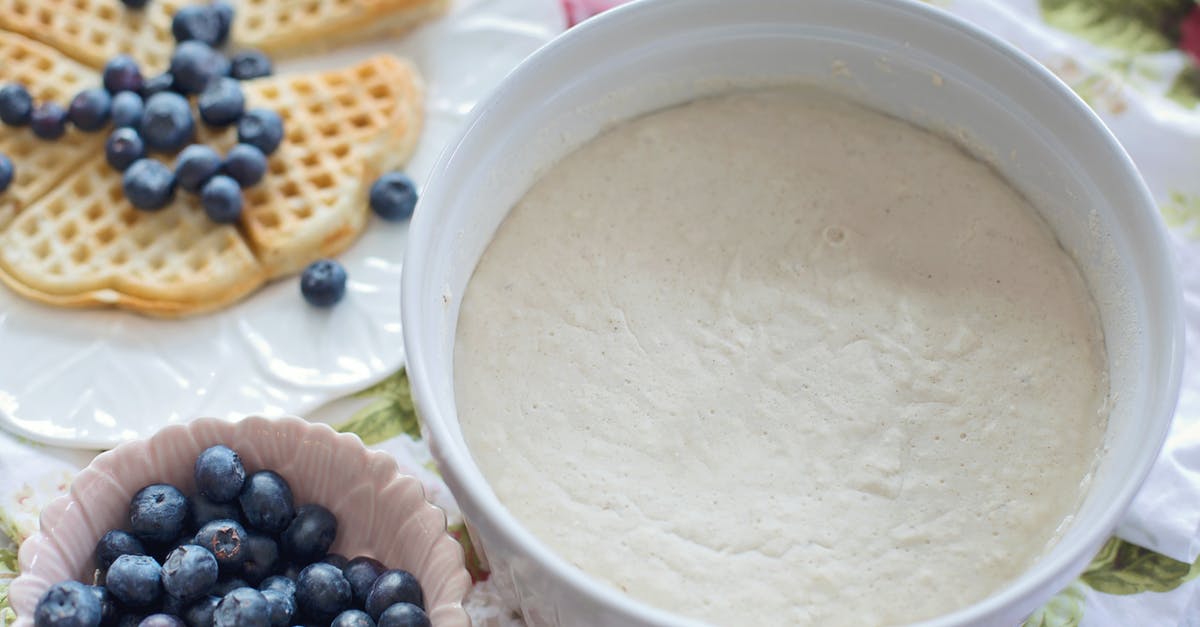Vinegar Smell from Sourdough Starter

I am in the process of creating my sour-dough starter.
I've been mixing in water and "strong bread flour" around a 1:1 ratio (100g of each, slightly more water to make the mixture wetter).
The mixture sits on the side between feeds (approximately every 24-36hrs), and has bubbled up, as can be seen on the side of its home (a cleaned out old 1ltr ice cream tub).
However in the last couple of days, I've noticed a distinct vinegar smell coming from it, and it seems to slightly separate: brown-ish water layer and a thick dough layer.
Do I need to worry? I could have contaminated it, as the kitchen is always all over the place. And the feeds are supposed to be every 24hrs or more often according to online sources, so I may not have fed it often enough.
I'm in the UK, so 15-20C in the kitchen.
TL:DR - vinegar smell from sour dough, is that a problem?
Best Answer
The vinegar smell is an indicator that your sourdough is growing up in a too cold environment. Without diving into the details of the various lactobacillae found in the average sourdough cultures, the simple rule is that a cooler environment favors the strains that produce more acetic acid while warmer temperatures are better for the production of lactic acid - the former being the acid in vinegar and the latter the much milder acid known from fermented milk products.
As immediate measure, find a warmer place for you starter. Caveat: warmer temperatures will also mean more yeast activity, i.e. more bubbles and in the worst case, a tendency to creep out of the container, so leave enough room just to be sure.
The separation of layers is a sign that the microorganisms in your sourdough are starving - which can coincidally favour the slightly more robust acetic acid producing strains. Once your starter has been somewhat established, meaning you get a reliable activity after each feed, it’s better to learn from your dough which feeding cycle works best. Remember that feeding simply means supplying a certain number of microorganisms with food so that they can multiply. Warmer temperatures will also increase their growth rates, so you should take that into account.
Depending on the ratio of (starter) : (flour and water), feeding time can be every few hours or once every day and a half. Ideally you start with a chosen ratio and measure the time until it just starts to collapse again. This is the ideal feeding time. (measuring means you don’t have to rely on visual clues alone, but get an idea when to plan the next feeding.) If you have a very active starter, you’ll probably want to reduce the amount of starter for a given amount of flour and thus extend times between feedings. Do not go below 10% of starter or you risk spoiling: There won’t be enough sourdough microorganisms to keep the nasty kinds in check for sure.
Pictures about "Vinegar Smell from Sourdough Starter"



Quick Answer about "Vinegar Smell from Sourdough Starter"
If your sourdough starter stinks like alcohol, vinegar, or nail polish remover, it means that it's really hungry and has produced lots of acetic acid. The good bacteria have eaten up all the nutrients in the flour and are desperate to be fed.What does spoiled sourdough starter smell like?
Lactic fermentation reaction that happens in sourdough starters produces acetic acid and lactic acid. Acetic acid imparts a sharp sour bite smell akin to acetone, while lactic acid imparts a smooth sourness akin to yogurt.Should sourdough starter smell sour?
What Should My Starter Smell Like? First all all, your starter shouldn't smell too vinegary, like gym socks, or nail polish remover. If it does, it just needs to be fed. Don't freak out over this too much.sourdough starter day 3 VOLUME EXPANSION VINEGAR SMELL
More answers regarding vinegar Smell from Sourdough Starter
Answer 2
Sourdough is a combination of yeast and bacteria. And the bacteria is responsible for the lactofermentation creating lactic acid. If you’re getting a sour smell like sour-milk or yogurt then that smell is expected.
Are you sure you’re not confusing it with lactic acid?
If you’re sure however you’re smelling vinegar; that must be acetic acid. The yeast in sourdough will produce some alcohol together with CO2; and that alcohol might ferment into acetic acid by some other fermentation process which is active in vinegar making, but not desired in sourdough fermentation.
In that case, you should start from scratch and prevent the surface of the dough from flies (lay a cheesecloth etc on the fermenation bowl, so it can still breath). As some flies are known to carry the bacteria for acetic acid fermentation, which is a nightmare for brewers.
Sources: Stack Exchange - This article follows the attribution requirements of Stack Exchange and is licensed under CC BY-SA 3.0.
Images: Jill Wellington, Tara Winstead, Karolina Grabowska, Michelle Leman
